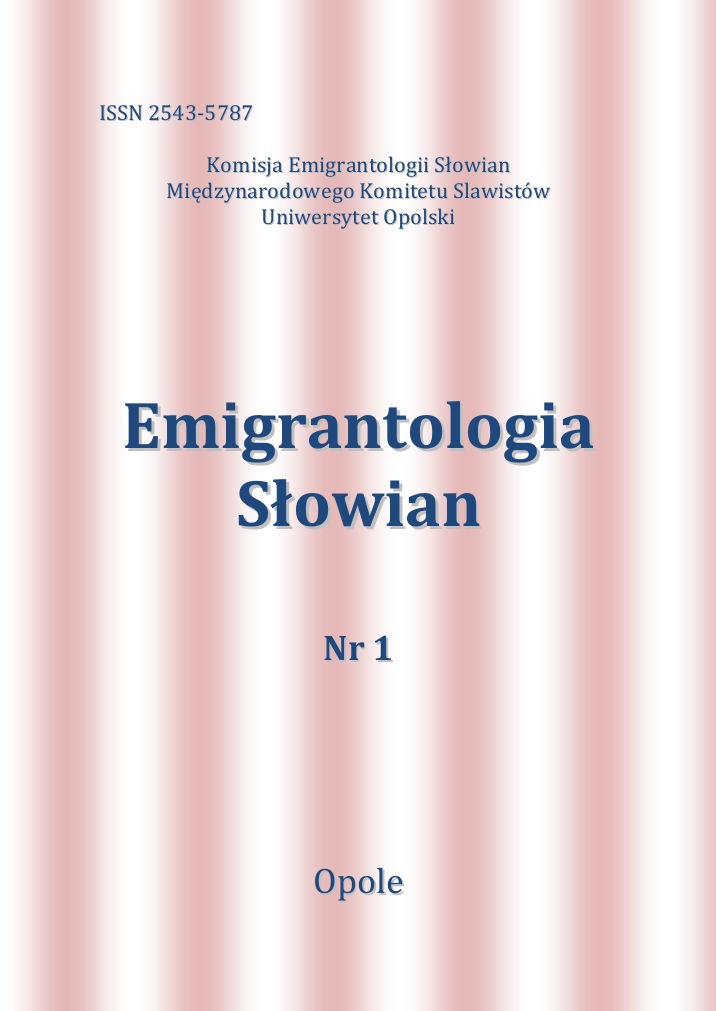
We kindly inform you that, as long as the subject affiliation of our 300.000+ articles is in progress, you might get unsufficient or no results on your third level or second level search. In this case, please broaden your search criteria.

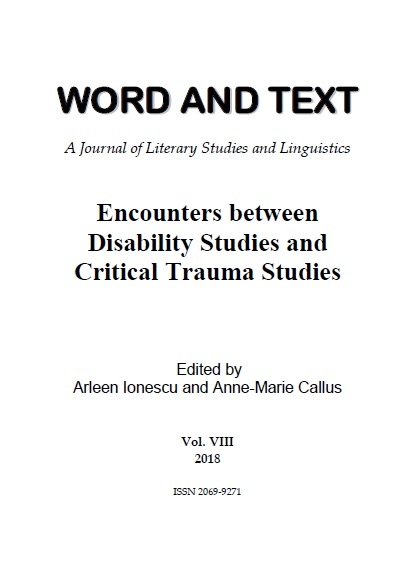
When setting up the premises for a dialogue between disability studies and critical trauma studies and embarking on editing this pilot issue on ‘encounters’ between the two disciplines, we necessarily welcomed interdisciplinary approaches, ranging across disability studies, trauma studies, literary and cultural studies, media studies, as well as many other disciplines in the humanities. The first step in introducing this issue to our readers will be to present the histories of both disability studies and trauma studies in order to see how they evolved and see why our proposal that they should meet half way or at least more often can be considered a valid one.
More...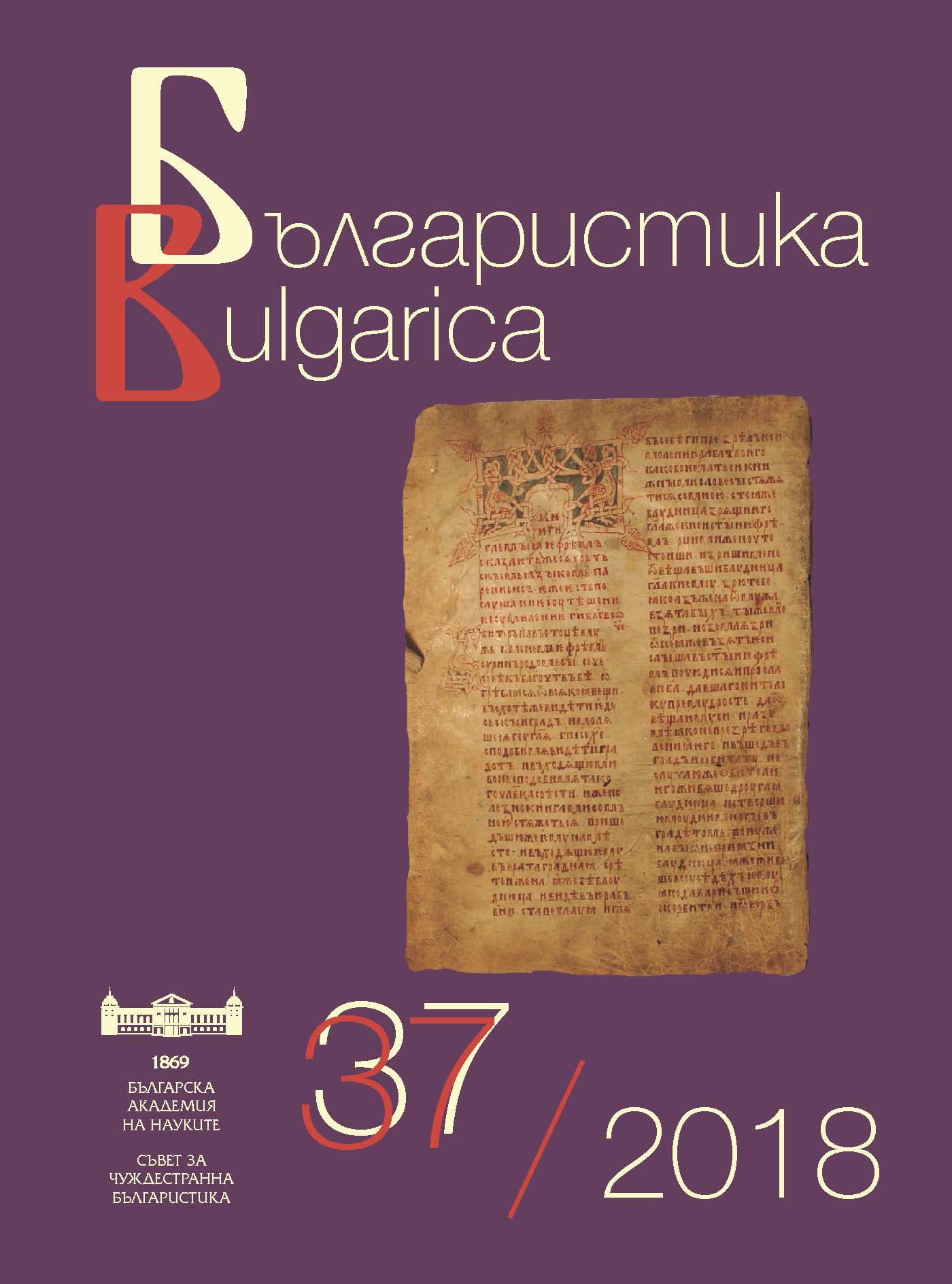
Selected bibliography in the field of Bulgarian Studies published in the current year.
More...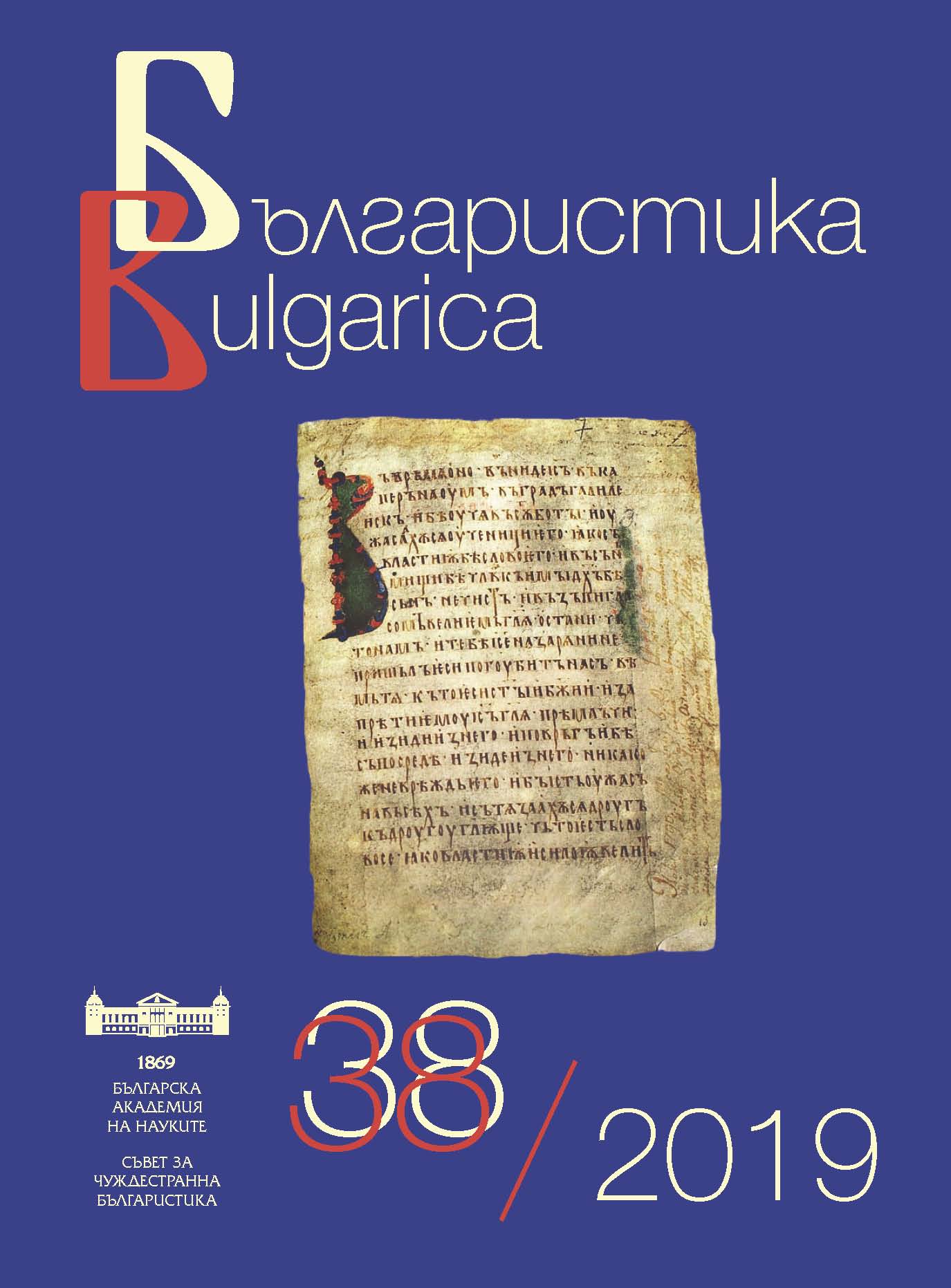
Selected bibliography in the field of Bulgarian Studies published in the current year
More...
Content of the main Bulgarian scientific journals for the current year in linguistics, literature, history, folklore, ethnography and art studies
More...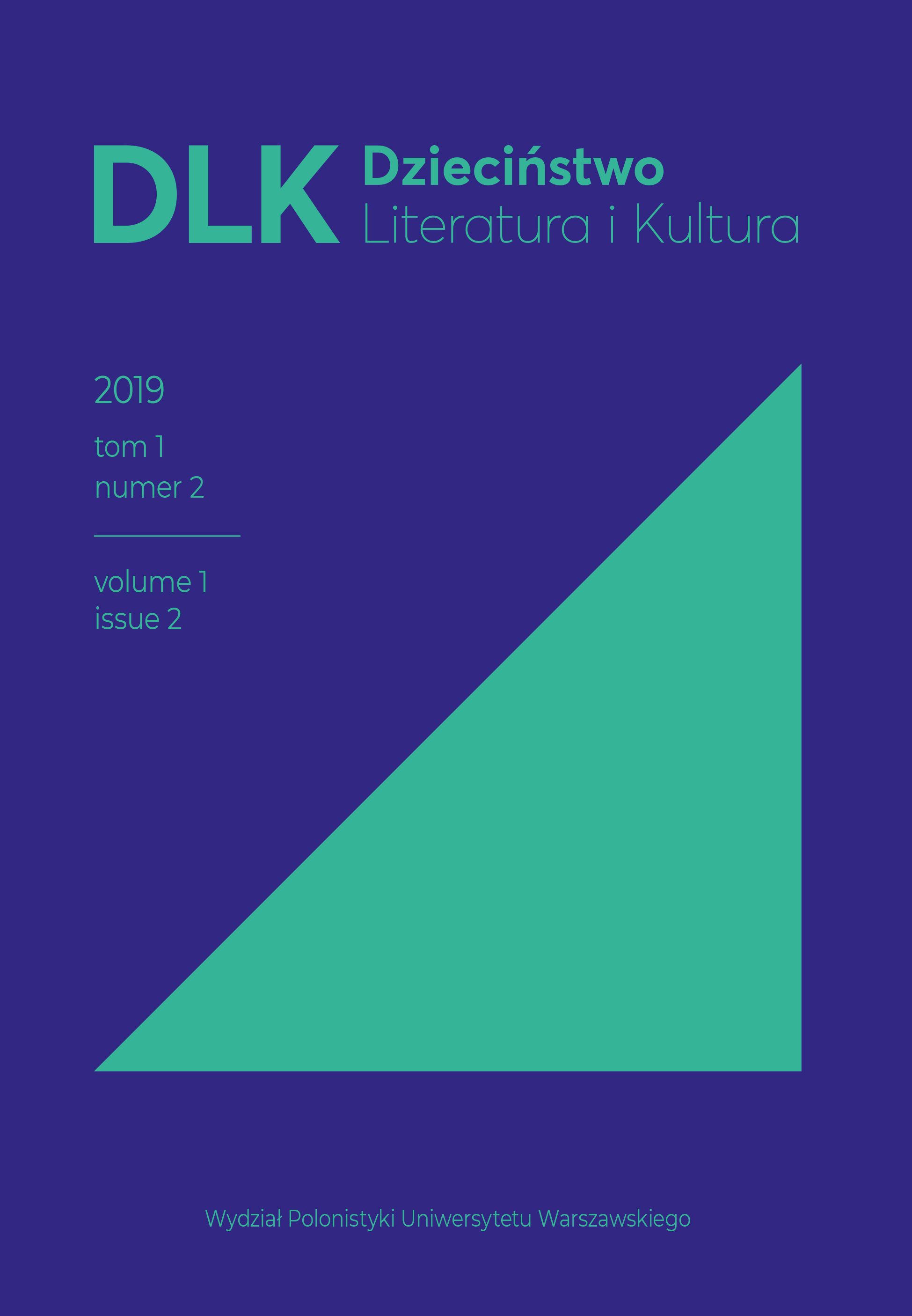
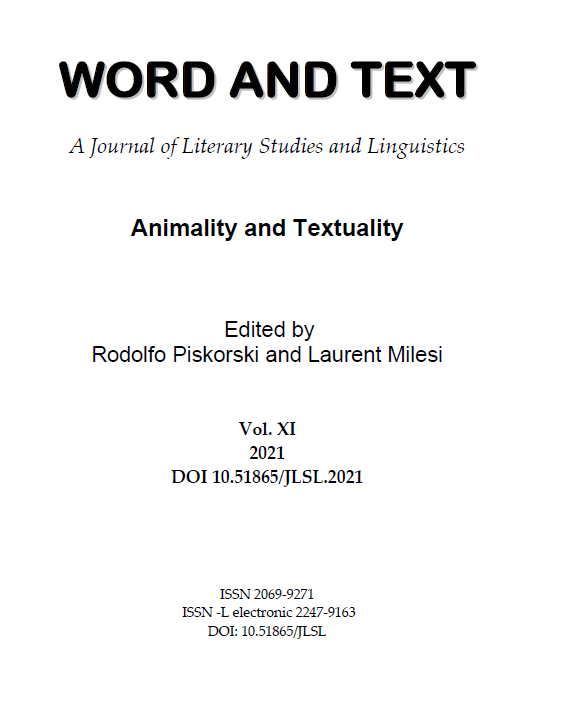
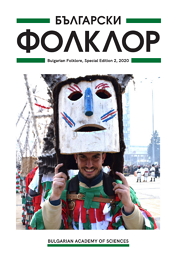
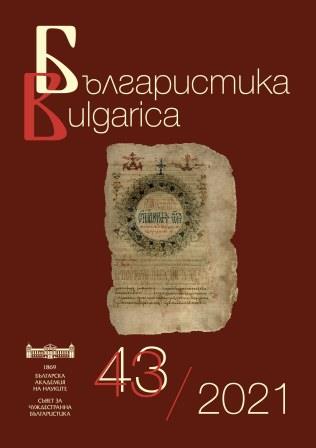
Selected bibliography in the field of Bulgarian Studies published in the current year.
More...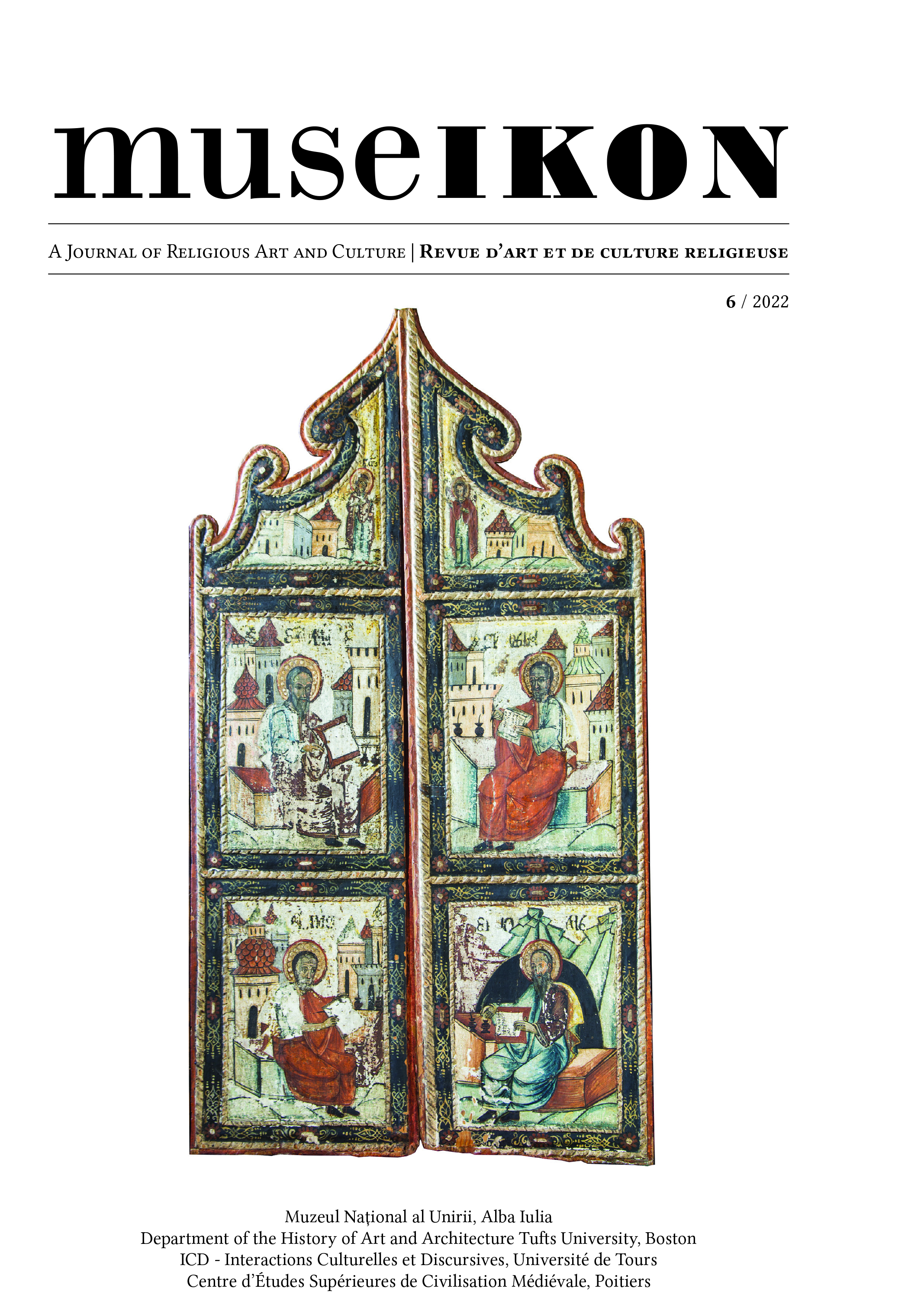
The Library of the Orthodox Metropolitan See of Moldavia and Bucovina in Iaşi preserves over a thousand copies of old Greek books. There are only ten manuscripts in this collection, one of which was com-missioned by Constantin Brâncoveanu, Prince of Wallachia. The collection consists mainly of Greek prints of various origins, some of which can be traced back to the library of the Princely Academy of Iași, succeeded by the Mihăileană Academy. Other volumes originate in the library of the Theological Seminary of Socola, founded by Veniamin Costachi Metropolitan of Moldavia, who donated his personal library to the Iași foundation. Sev-eral references come from the private collections of high hierarchs, while some books were collected from various Moldavian monasteries, especially from those who used to be metochia of the Greek Patriarchates and the great monasteries under their jurisdiction. This article evaluates the importance of the prints according to their dating, place of publication, owners, and contents (generally didactic books, but also polemical books of a religious nature). It also seeks to reconstruct the historical context of their circulation in Moldavia and the circumstances in which they came into the possession of the Metropolitan See of Moldavia and Bucovina. The analysis provided takes into account prosopographical investigations, the history of the Moldavian educational institutions, and the examination of the notes (mostly in Greek) on the prints.
More...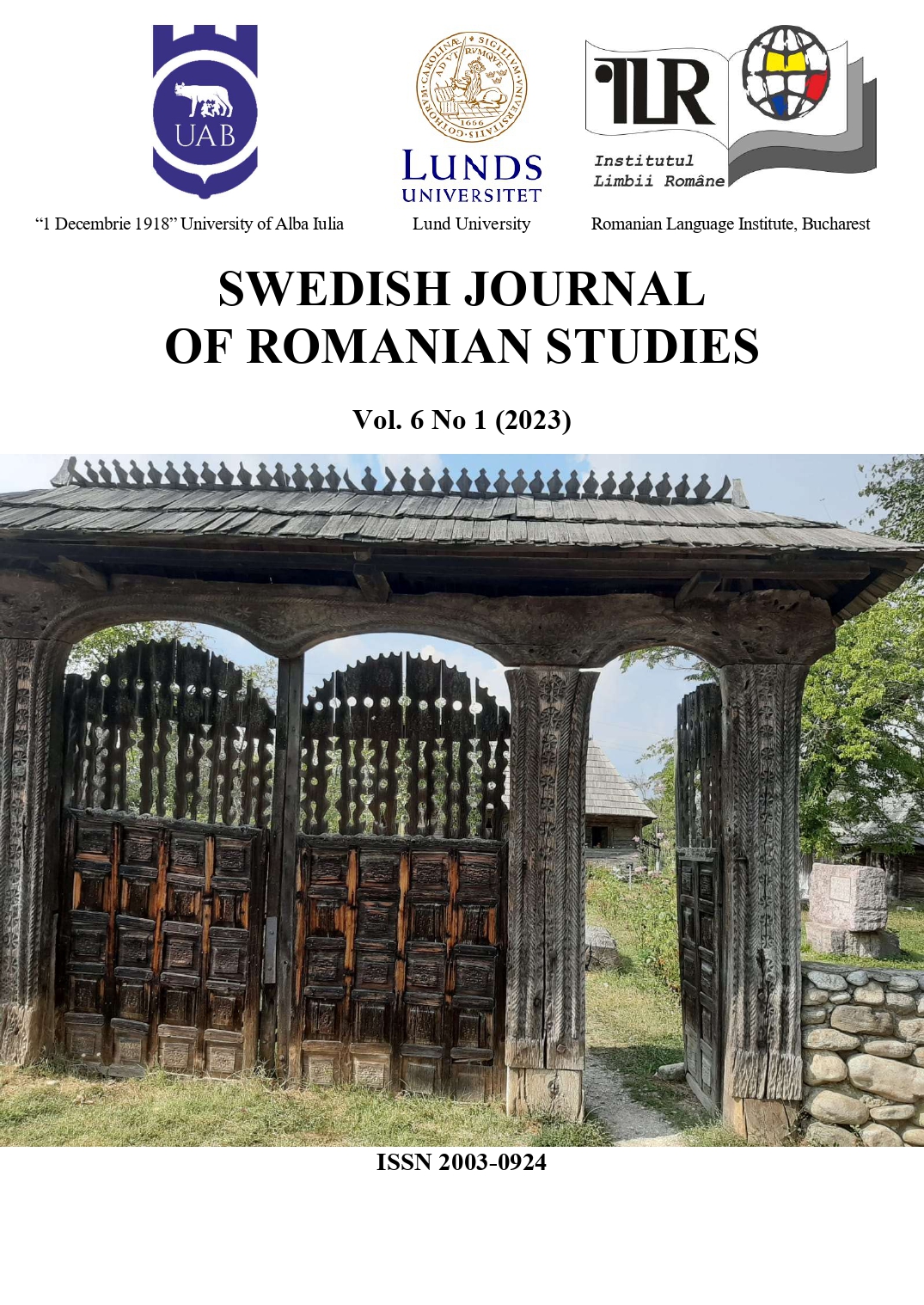
This study analyses the relationship between failure and success from two perspectives: creative psychology and sociology of creation. By starting from Angelo Mitchievici’s recent book, “Farmecul vieților distruse. Câteva reflecții despre ratare” [The Charm of Failed Lives] (2022), which explores one of the favorite themes of decadent literature and art (failure), I aim to highlight the most relevant existential postures in a writer’s life: the anti-bourgeois aristocratic posture (the dandy) and the proletarian-democratic posture (the bohemian). It is not by chance that Mitchievici dwells on the works the Romanian-French writer Emil Cioran, who tried to build an image of a secluded writer, close to anonymity, avoiding to cultivate both the bohemian and the dandy style, by adopting a lifestyle shaped by the cult of work and discipline, in the spirit of the Protestant ethics theorized by Max Weber. Mitchievici explains very convincingly how, once he emigrated to Paris, Cioran completely abandoned the Romanian language, in which he was convinced he was failing as a writer, in order to devote himself exclusively to writing in French, with the idea of conquering global glory. In addition to Cioran, the authors in focus are Francis Scott Fitzgerald, Shakespeare, Voltaire, Flaubert, Dino Buzzatti, Mihail Sadoveanu, Mircea Cărtărescu, etc., which provides the critic with the opportunity to reconnect with his former books (e.g. “Decadență și decadentism în contextul modernității românești și europene”, 2011) and to show a refined and mature essayist’s vein.
More...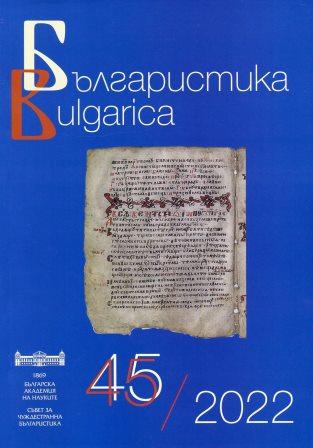
Selected bibliography in the field of Bulgarian Studies published in the current year.
More...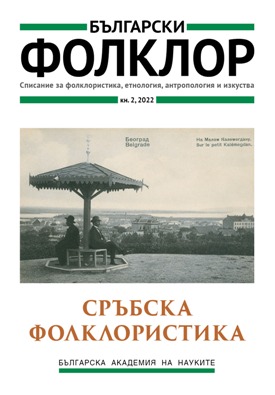
This paper analyses the attitude of Bulgarian researchers towards the phenomenon of bugarštica, with special reference to the book “Croatian Bugarštica Songs and Their Bulgarian Counterparts. Studies and Texts”, edited by Stefana Stoykova and published in 2015 by the Bulgarian Academy of Sciences and the Institute of Ethnology and Folklore Studies with Ethnographic Museum. Stefana Stoykova substantiates the thesis about the Bulgarian origin of the bugarštica, present in the research spanning from Ivan Shishmanov to Antonina Afanasieva-Koleva, by analysing Bulgarian recordings from the 20th century in which, according to Stoykova, traces of bugarštica singing still remain preserved. By analysing the formula “orao se vijaše” [an eagle hovered] and the conceptualization of the falcon figure (in metaphors, as a mythical mediator between the worlds, etc.) in oral lyrical poetry in South Slavic context, this paper uncovers the consonance between bugarštica singing and other genre patterns from the 15th until the 20th century primarily in shared formulas, in style and language, in archaic mythological symbolism. The commonness of these elements is attributed to cohabitation, frequent migrations and the broadest processes of creation and duration in oral epic and lyrical traditions in South Slavic cultures.
More...
This paper explores the position of the rebellious, disobedient hero in his own environment on the examples of South Slavic and Russian epics; more precisely, it explores the hero’s disobedience to an authority from his social or family domain. There is a collision between the heroic status of the hero, emphasizing disobedience, independence and pride, with his social and family status, which lowers the hero on the hierarchical ladder. The hero opposes the will of his superior and sometimes explicitly shows his defiance through special gestures, specific gait or riding, often in the same way as his enemy, but unlike the enemy’s, his arrogance and daring are not always punished. An insubordinate hero is not a frequent type, although often a young hero and a neophyte. Besides, disobedience is not reserved for one and the same characters, although the most disobedient heroes are the greatest Russian hero Ilja Muromec and the greatest South Slavic hero Marko Kraljević. Disobedience is only partially a means of the heroes’ characterization, it is mainly used as a motivation, as an element of the commencement that, through the initial collision, opens the possibility for different variants of the plot, in which, in most poems, the epic prevails over the balladic resolution, the heroism over the punishment for hybris, the heroic over the magical principle.
More...
Book Review: Савремена српска фолклористика VIII ‒ словенски фолклор и књижевна фантастика. Ур. Дејан Ајдачић и Бошко Сувајџић. Београд: Удружење фолклориста Србије, Универзитетска библи- отека „Светозар Марковић”; Кијев: Комисија за фолклористику Међународног комитета слависта; Лозница: Центар за културу „Вук Караџић”, 2020. 518 стр. ISBN 978-86-7301-149-3
More...
Book Review: Ана Вукмановић. У трагању за извир водом. Слике воде у јужнословенској усменој лирици. Београд: Академска књига, 2020. 296 стр. ISBN 978-86-6263-301-9
More...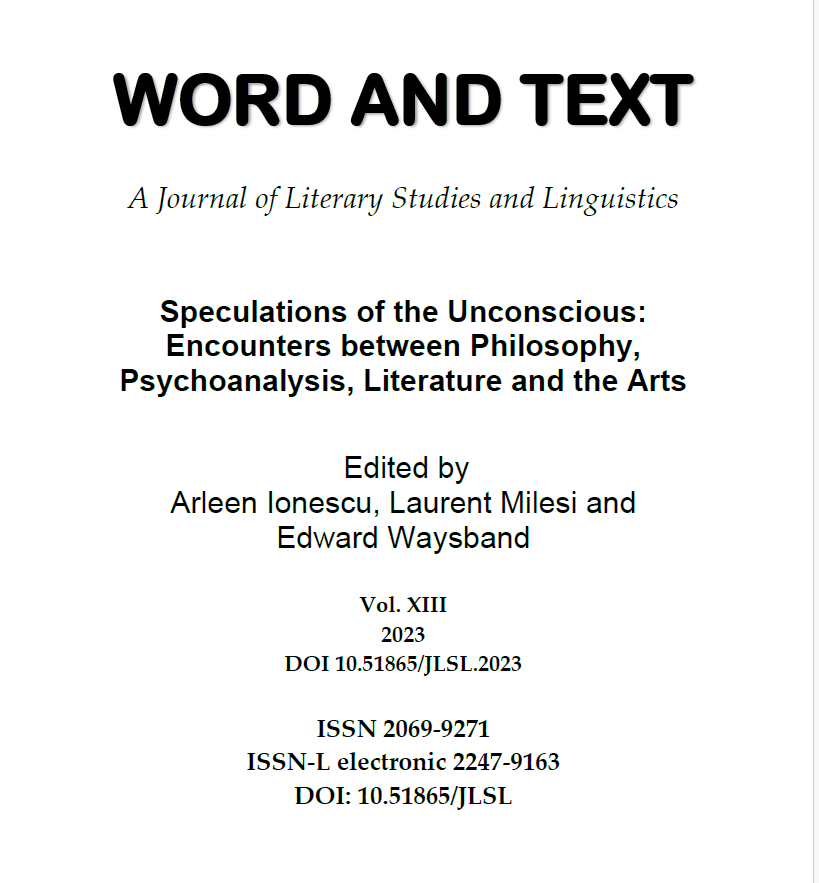
The unconscious (das Unbewusste; etymologically, that which is unknown) is a relatively modern concept that naturalized areas of the unknown previously explored by literature, mythology, and metaphysics. Each in their own domain, Karl Marx, Sigmund Freud and Friedrich Nietzsche, the three ‘masters of suspicion’ (according to Paul Ricoeur), debunked the hubristic claims of modern rational consciousness, exposing its social, existential and psychological grey zones. 1 Inspired by, yet critiquing humanity’s confidence in the power of reason, their acknowledgement of the limits of the Enlightenment is emblematized in Freud’s charting of the conflictual relations between the orderly ego and the unruly id.
More...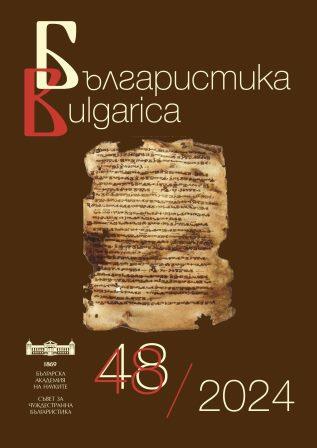
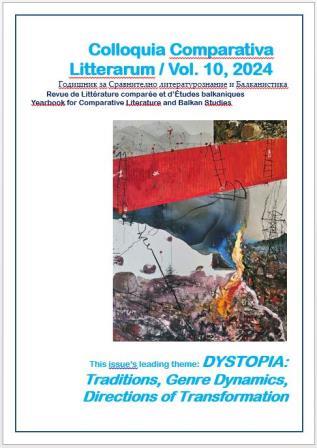
Book review: Балканските култури: диалог, трансфер, метаморфози. Под ред. Орлин Събев, Лора Тасева, Антоанета Балчева. София, ИБЦТ – БАН, 2023, 234 с., ISBN 978-619-7179-38-5 [The Balkan Cultures: Dialogue, Transfer, Metamorphoses. Ed. Orlin Sabev, Lora Taseva, Antoaneta Belcheva. Sofia, IBSCT – BAS, 2023].
More...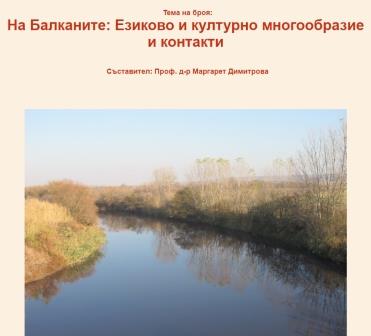
The paper gives information on a medieval Slavonic translation of the Vita of St. Sabbas the Sanctified. A Middle Bulgarian copy of the translation (manuscript no. 226 of the 14th century, kept in Hilandar Monastery on Mount Athos) is edited with variant readings from two other copies: Hilandar 432 and Dragomirna 706.
More...